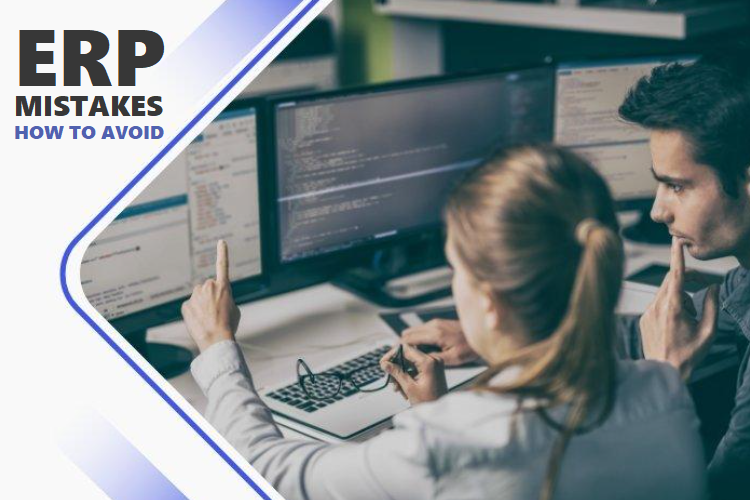As businesses continue to grow and evolve, the need for an ERP system becomes increasingly important. An ERP system can help streamline processes, improve efficiency, and provide a better overall customer experience. However, implementing an ERP system isn’t always easy or straightforward. There are some common mistakes that organizations make during the implementation process that can lead to costly delays or even complete failure.
What Does an ERP Implementation Consultant Do?
An erp implementation consultant is an independent software services specialist that acts as your partner, advisor, and advocate as you implement a new enterprise software system. These professionals must have a wide range of skills to be effective, including project management, communication, and problem-solving. In addition, they must be familiar with the tools and products you are using – this is especially true for ERP systems that incorporate multiple domains like HCM / CRM, SCM, MFG, FIN, etc.
Many companies choose to rely on a single consulting firm for both the selection and the implementation of an ERP solution. This approach is risky, because it creates a single point of contact and increases the likelihood that inexperienced consultants will give poor advice. It is also difficult to ensure that the firm’s capabilities match the needs of the project.
A successful erp consultant must be adept at identifying and solving complex problems that arise during the course of the project. These include issues related to business process changes, integrating new modules and plugins, and ensuring that the database has accurate, up-to-date information. These tasks are not easy and require a great deal of collaboration and coordination between team members and the client.
ERP systems are complex and often have a high risk for failure if they are not properly installed and configured. This is why it’s important for a consultant to have experience in installing and configuring ERP systems. In addition, it’s critical that a consultant is able to provide feedback and recommendations to the client during the implementation process. This includes assessing whether the software is meeting the business’s requirements and modifying it where necessary.
How to Avoid ERP Implementation Mistakes?
ERP implementation can be tricky and it’s important to avoid common mistakes in order to ensure success.
ERP systems are amazing tools, but they can only work as well as the data you feed them. Make sure to start with clean, accurate data and set up your system for success.
This means keeping a log of meeting notes and project updates internally, as well as setting up clear goals for the process from start to finish. However, ERP implementation can be tricky and it’s important to avoid common mistakes in order to ensure success.
Not Identifying Your Needs
The best way to prevent this mistake is to work with an ERP consultant or specialist that can help you identify your specific business needs and then select the right solution. This will ensure that the system is aligned with your business and that you get the most out of it.
Another big mistake many businesses make is underestimating how much time and resources the ERP process will take. This can lead to budget overruns and frustration among stakeholders. To avoid this, it’s important to create clear SMART goals and timelines for the project.
It’s also important to do proper testing. Just because a system passes functional testing does not mean it will perform well under real-life usage. That’s why it’s a good idea to run load testing to simulate the highest possible user load on your ERP system before going live. This will help you catch any performance issues in advance and avoid costly surprises down the road.
Not Having the Right Team
ERPs are a big change to a company, and employees need to be properly trained in order for them to feel comfortable using the software. If they don’t, you risk them reverting to old processes or finding manual workarounds, which could skew your data and make it difficult for you to get a return on your investment.
When selecting team members for your implementation, ensure that they have both the leadership skills to champion the project with other employees and decent technical knowledge. It’s also good to include department representatives so they can voice their concerns about how the new system will impact them, and help other departments understand their concerns.
Lastly, don’t forget that this project will take up a significant portion of your team’s time. So, it’s important to choose people that you know can be trusted to deliver the results within the specified timelines. Working with an ERP consultant or specialist takes a lot of the guesswork out and allows your team to focus on delivering high-quality results.
Not Having a Plan
The cliche says it all, “garbage in equals garbage out.” The most advanced ERP software will only work as well as the data that goes into it. It is important that the initial planning phase includes a thorough analysis of your existing data to minimize potential issues post-launch.
It is also important that you bring in key team members early on to understand their schedules, workloads and responsibilities. This helps prevent the team from adding other asks into the mix during the ERP implementation process that may not be the highest priority.
Lastly, you need to make sure your budget is properly estimated. This is not a project you want to rush and skimp on, as it will most likely require an ongoing maintenance budget and additional talent. Choosing the right partner can help you get the best bang for your buck and avoid costly mistakes down the road. A knowledgeable ERP consultant or specialist can help you determine the best fit for your needs.
Not Having Enough Time
Implementing an ERP system is a massive project and requires dedicated time from all team members. It is important to plan for the time commitments involved and schedule meetings to address any issues that may arise. This will prevent the project from being stalled or derailment down the road.
It is also important to avoid not having enough time to properly test the system. Running functional testing is one way to ensure that the ERP is able to handle the company’s business processes, but it is important to also do load testing. This will simulate the highest possible real-life usage of the ERP and will identify any potential problems before they occur.
It is also important to avoid not having enough Time to train staff and help them adopt the new ERP system. It is essential to get the right people involved in the planning process and keep them informed about the project so that they are excited and ready for the changes. This will help them to get the most out of the ERP and minimize the risk of reverting back to old systems or finding manual workarounds.
By following these tips and avoiding common ERP implemention mistakes associated with setting up an effective solution, you can help ensure smoother operations going forward – saving both money and headaches along way!




